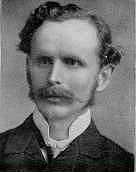
Some creationists accuse theistic evolution of deism: so, Wayne Grudem writes "The fundamental difference between a biblical view of creation and theistic evolution lies here: the driving force that brings about change and the development of new species in all evolutionary schemes is randomness.... But the driving force in the development of new organisms according to Scripture is God's intelligent design." (Systematic theology, 276)
Yet it seems here that Grudem has assumed, a priori, that the view of "randomness" that theistic evolutionists tend to believe in is one that is outside of God's theistic design. Yet every theist ought to believe that though there are apparently "random" and "chance" events the Lord is utterly sovereign in them all. The Lord has "designed" intentions in them. From the roll of the dice to the decision of free agents the Lord has intentions that are most certainly NOT random.
Proverbs 16 reminds us of both of these facts
9 In his heart a man plans his course,
but the LORD determines his steps.
33 The lot is cast into the lap,
but its every decision is from the LORD. (NIV)
On the other hand there are those who hold to theistic evolution who accuse creationists of deism.
Ever since Henry Drummond coined the phrase "the god of the gaps" it has been used as an accusation against those who hold to creationism, and more recently Intelligent Design. The idea is that peopl
 e seem to think that science runs itself quite nicely, thank you very much, but there are a few things that cannot be explained without some kind of miraculous intervention from God. Like Drummond, they urge instead belief in "an immanent God, which is the God of Evolution, is infinitely grander than the occasional wonder-worker, who is the God of an old theology."
e seem to think that science runs itself quite nicely, thank you very much, but there are a few things that cannot be explained without some kind of miraculous intervention from God. Like Drummond, they urge instead belief in "an immanent God, which is the God of Evolution, is infinitely grander than the occasional wonder-worker, who is the God of an old theology."Well, though once again this accusation of a God only occasionally involved in His world may be fair for a few creationists, sure theistic creationism is also possible: that God is utterly involved in every moment, but differently involved in the miraculous.
Whichever position you take on the Creationism vs. Evolution debate, make sure that in avoiding falling into materialism, you don't inadvertently fall into deism: that would be a far more serious error than getting the Creationism vs Evolution question wrong.
Make sure also that you don't wrongly accuse a brother or sister in Christ who believes in the same God as you do of a theology to which they do not hold.
1 comment:
Mike... I too am a pastor (about your age) who has been getting "up to date" on the whole debate. One thing I found very fascinating is that in the argument that "everything is random", we fail to see that creation, even in evolutionary terms, seems to be "driven" towards humankind. Rewind the clock and start it all over again, and the universe would one day produce a third generation star with a solid planet like earth which would have the elements of life in it which would eventually led to intelligent life. If it were truly "random", there would be an infinite number of possibilities, but there is not.
Another illustration is light. When light strikes a mirror, 90% of the light reflects back, but 10% passes through. Scientists studied these particles that passed through and found them to be exactly the same as the ones that reflected back. There is no way to predict which of the light particles will pass through and which ones will reflect back. It's completely random. BUT the fact that 10% will pass through EVERY TIME is an absolutely predictable outcome (otherwise my mirror would flicker quite annoyingly). Think about that long enough, and it will blow your mind. What is random is entirely directed and controlled by a law of nature that can't be explained. If the same amount of light passes through every single time, then one has to ask how much of that process is truly random.
It's difficult not to see design not only in the way the universe came into being, but in how life emerges and is sustained. This universe is designed and directed to bring us into being. The anthropic principle is an intellectually amazing fact of our existence that atheists have yet to address in a way that is the least bit satisfying.
Post a Comment